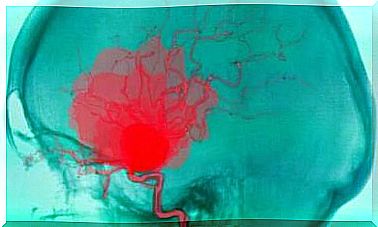Seven Bad Habits That Can Affect Your Thyroid Health

Do you know what your thyroid health is like? The thyroid gland is a small gland that is shaped like a butterfly that can be found in the front of your neck, right on top of your collarbone.
It is an endocrine organ whose main function is to secrete hormones that regulate the body’s vital activities.
It should also be mentioned that it is necessary for metabolic activities, as well as a factor for your mood, heart rate and body temperature.
Because of this, a malfunction of the thyroid gland results in a number of consequences for your health. If left unmanaged, they can be left astray and lose the right path.
Because of this, it is important that you know the habits that can affect it. In addition, it is helpful to be aware of preventative methods that you can take so that it does not become a serious problem.
Furthermore, we want to share the seven most common habits that you should try to avoid as much as possible to keep your thyroid health in good condition.
Find out what they are!
1. Smoking

Excessive smoking increases the likelihood of thyroid disease since the poison in cigarettes affects your thyroid health.
While the main consequences affect the respiratory system, it is no surprise that smokers represent a large proportion of patients with thyroid problems.
This is because tobacco suppresses the stimulating hormone in the thyroid gland whose job is to help with metabolism, ocular health and cardiovascular activities.
A sedentary lifestyle can affect your thyroid health
A sedentary lifestyle can be the cause of a variety of illnesses that affect your physical and emotional health. Nevertheless, the effects of it usually come due to the malfunction of the thyroid gland.
Inactivity increases one’s tendencies to accumulate fat. Because of this, it is a major cause of weight gain, obesity and other metabolic problems.
In addition, since it lowers the secretion of thyroid hormones, it can lead to hypothyroidism.
This disorder not only affects one’s ability to burn calories and fat. In addition, it can also increase one’s risk of suffering from cardiovascular disease, hair loss and fatigue.
Poor stress control

Not knowing how to control stress in your daily life can be a trigger for thyroid dysfunction.
The endocrine system is sensitive to our emotional stage. When it goes through an intense experience, it affects the hormone levels of our thyroid gland.
As a consequence, the hormones become unbalanced and this affects the health of the other systems in the body.
4. Diet low in iodine
Low levels of iodine in our diet are a major cause of thyroid problems such as hypothyroidism.
The body requires this substance to optimize the production of hormones in the thyroid gland. Thus, it is necessary to get the required amount for your thyroid health.
Fortunately, you can find it naturally in foods like:
- Sea salt
- Marine vegetables
- Blueberry
- Natural yogurt
- Beans
- Potatoes
- Peas
- Pineapple
- Chocolate
5. Alcoholic beverages

The dangerous effects of excessive alcohol use are nothing new. Nevertheless , it should be mentioned that the thyroid gland is one of the most affected organs.
Although the liver is responsible for filtering and burning these drinks, their toxins (which travel through the bloodstream) affect hormone production. Because of this, consuming alcohol can affect your ability to lose weight and play a role in the development of metabolic problems.
6. Gluten
Patients with celiac disease or gluten intolerance may suffer from problems with their thyroid health as a consequence of this protein on the body.
Since the immune system attacks the healthy tissue to detect this substance in the body, it causes an inflammation and metabolic reaction that affects your quality of life.
Thus, a gluten-free diet can affect the functions of the thyroid gland even for patients who do not have this intolerance. As a result, it can also promote weight loss.
7. Excessive consumption of soy

Vikan does not deny the fact that soy is a food that has many nutritional properties that can greatly give us many health benefits. However, you should not eat it excessively as it may prevent the absorption of thyroid hormone, especially in patients who are already at risk.
In fact, those who have already been diagnosed with thyroid disease should limit or completely eliminate this food and everything that comes from it.
Did you identify with any of these bad habits? If you did, try to avoid them as much as you can as a preventative method to protect your thyroid gland. Exercising these bad habits can often be a potential trigger, even if you do not suspect thyroid problems .









